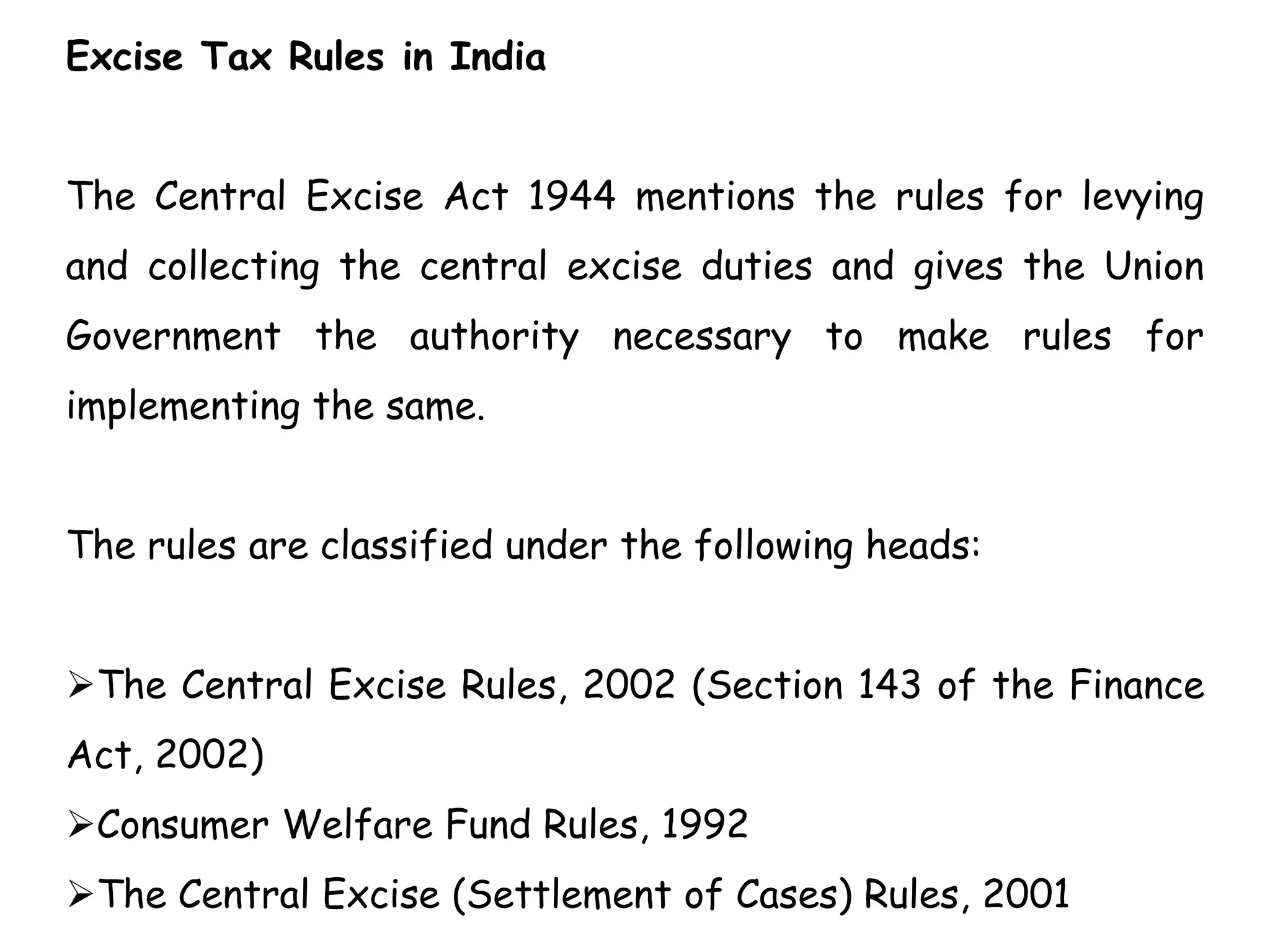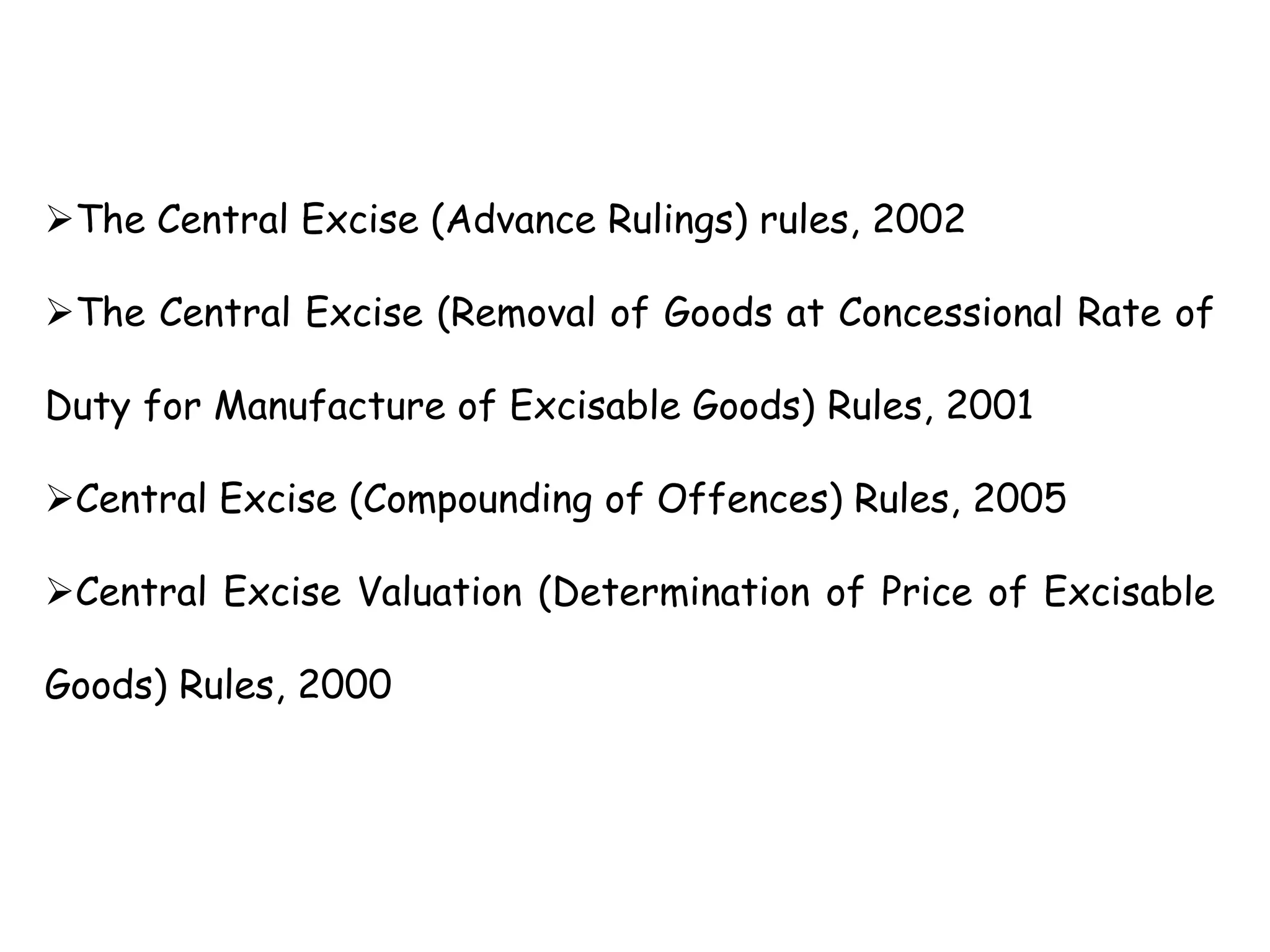- Excise tax is an indirect tax levied on goods produced within a country, as opposed to customs duties which are taxes on imported goods.
- There are seven main types of excise taxes in India, including basic excise duty, national calamity contingent duty, special excise duty, and education cess.
- Excise taxes are administered by the Central Board of Excise and Customs and collected based on the classification of goods in the Central Excise Tariff Act. Valuation of goods for taxation is based on tariff value or transaction value.



















